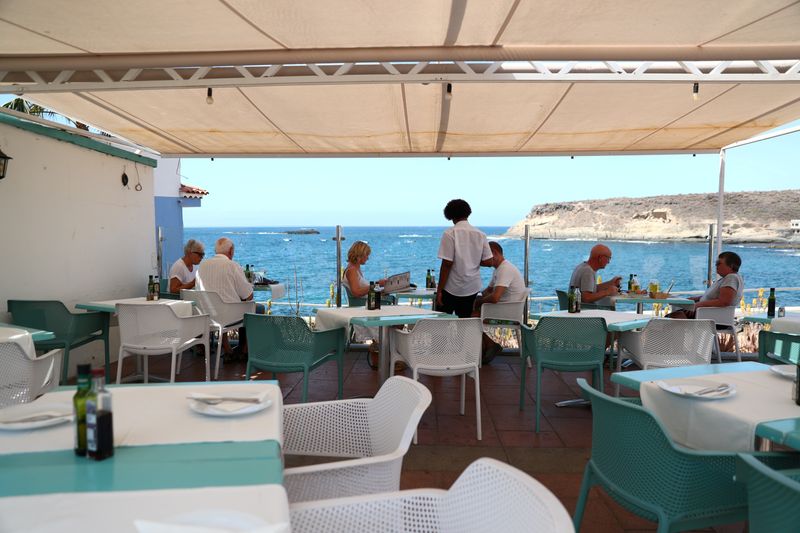LAS PALMAS, Spain (Reuters) – The Canary Islands are planning to welcome thousands of German tourists later this month before Spain’s borders officially reopen, but want the visitors to be tested for the coronavirus, a source in the regional government said.
The plan, which still needs a green light from the central government in Madrid, follows an initiative by the Balearic Islands, which will start allow back German tourists on Monday.
The main difference is that the Balearics will not ask for a test, while the Canaries will.
“It’s the most reliable system for minimizing risk,” the regional government source told Reuters. The plan was to welcome up to 9,300 German tourists in the second half of June.
The source said it had not yet been decided if testing would be done before people travel or on arrival.
Severely affected by the pandemic, Spain now seems to have it under control. It plans to start reopening its borders to foreign visitors on July 1, with exceptions for some islands.
The Canary and Balearic Islands are among the Spanish regions least affected by the virus, with around 2,000 confirmed cases each.
An Economy Ministry spokesman said the government was working on a contact-tracing app which will be tested in the Canary Islands and could be rolled out later across the country. He did not say when that would be done.
The nearly 11,000 German tourists allowed to visit the Balearic Islands from Monday will have to provide health information and contact details and will face temperature checks on arrival, but will not undergo quarantine or testing.
A Spanish government source told Reuters on Tuesday that there were no talks on a travel corridor with Britain, where the pandemic is substantially worse than in Germany.
(Reporting by Paola Luelmo, Additional reporting by Isla Binnie,; Writing by Emma Pinedo,; Editing by Ingrid Melander and Giles Elgood)




















